BISHKEK | The craft beer scene in Asia isn’t exactly overwhelming. There’s Japan which has many fantastic breweries, and places like Taiwan and South Korea which are starting to develop great brewing scenes however outside of that there really isn’t anything extraordinary. When it comes to Kyrgyzstan, well things are pretty much as you’d expect – not particularly exciting. Of all the countries in continental Asia, I think Kyrgyzstan is best poised to “go craft”. I’ll attempt to explain why in this article, but first let me set the scene for those who don’t know what I mean.
Any beer lover who’s been to most parts of Asia knows what it’s like to drink beer there – there is invariably 1 or 2 local lagers of dubious quality, and that is simply what you drink. You don’t order beer by name, you ask for “a beer”, and get whatever they have in stock. In Thailand, Singhga, Chang and to a lesser extent Leo, are synonymous for beer, as there is rarely anything else available. In Sri Lanka you’ll be drinking Lion – some classy joints have Anchor available as well, but when it comes with both a bigger price and a bigger hangover, why would you bother? It varies in India by locality, but there is always one dominant local brew. Singapore has Tiger, Indonesia Bintang. There are precisely 4 beers available throughout the entirety of Nepal, each a lager. You get my drift.
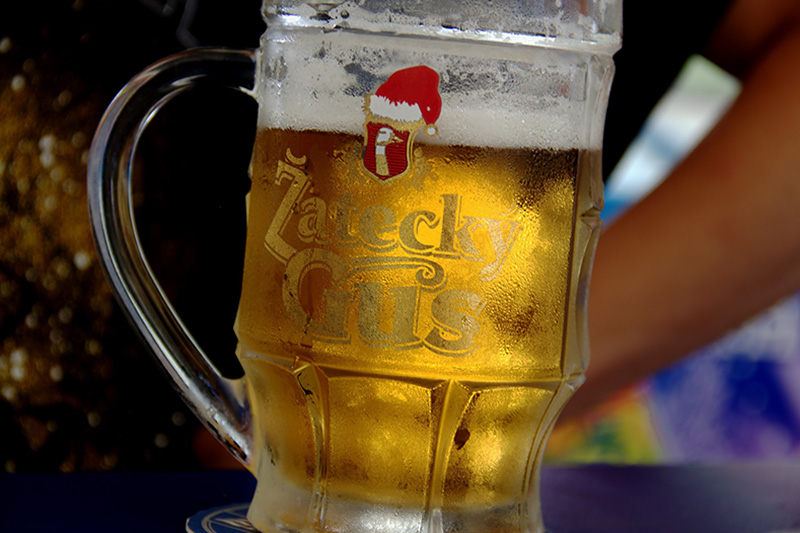
Kyrgyzstan is different, but only sort of. Beer is still mostly synonymous with lager, and it’s still all pretty generic, but there is a real appetite for different brands. You can (and I did) spend weeks without having the same beer twice – even when going to everyday pubs and small local bottle shops. There is a real diversity in availability which means every beer is a decision, not just a case of “the usual”. Before we get carried away, I should point out that the majority of these beers are just imported Russian lagers, but there are a few interesting drops to be found without great effort – Honey Ales, IPAs, Porters, and such. Most interestingly though, there is no overwhelmingly dominant brew. Even Arpa, which has the presumably indomitable trump card of operating a massive brewery in the heart of the capital Bishkek isn’t enough for it to achieve synonym status; with what felt like a 30% market share they are far from having a monopoly.
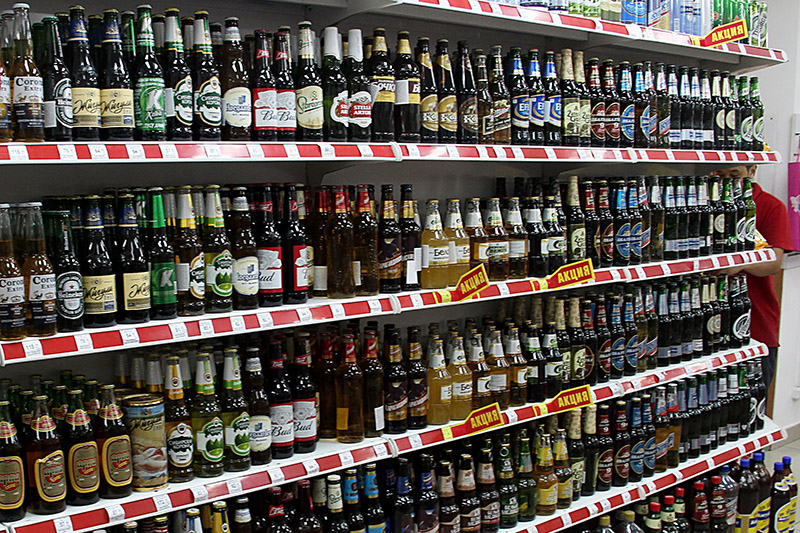
Most pubs offer something a bit different, but nothing like what a craft beer pub as we know it would. There are two brew pubs in Bishkek making good beer, each with a huge premises and lovely beer garden. They are still a bit niche, a bit novelty, but the appetite is there.
Blonder
Blonder is medieval themed brewpub in the commercial part of a larger residential complex. Even though it’s bordered by apartment blocks on two sides and a 4 lane road on the third, it’s far enough away from each to be quiet and secluded, and makes for a great spot for a beer.
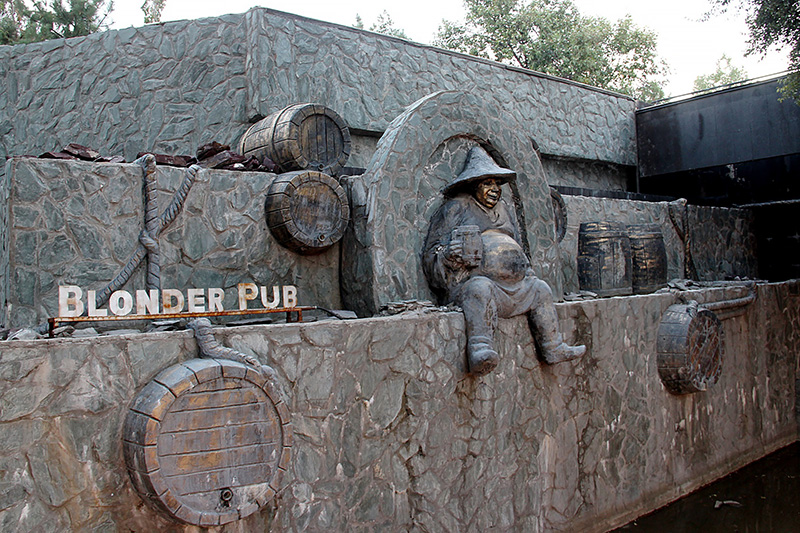
There is loads of seating – enough that I knew attempting to count it would be futile before I even tried – about half of which is outside where it catches a lot of afternoon sun. If I lived in one of the aforementioned apartment blocks, I’d be spending many a lazy summer evening after work down here, I’m sure.
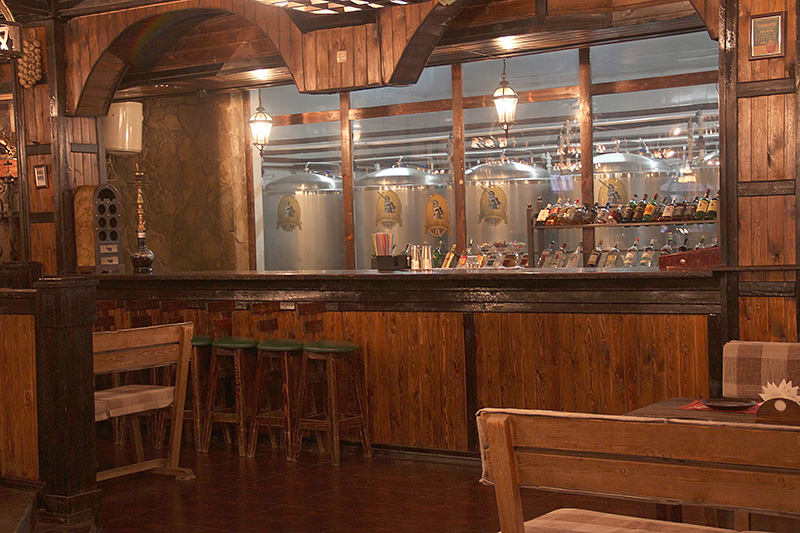
They brew a few standard beers which are always available, and several others with rotating availability. When I was there the rotation consisted of 2 of the 4 fruit beers, a premium lager, and a “green beer”, which was brewed with herbs to make it a starkly green colour. Due to the broad market appeal all the mainline beers were quite reserved and sensible; nothing extreme, and even the stout was mild enough for everyone to enjoy. The specialty beers made an attempt to showcase some of the more unusual styles, which was good to see. All the beers were tasty and sessionable, and the food was also good. Slightly overpriced compared to other places in Bishkek, but no more so than expected for a venue like this.
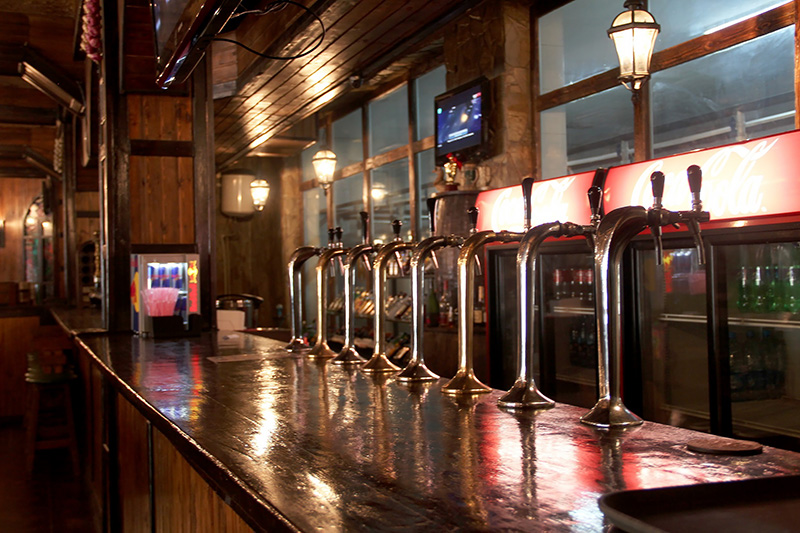
I checked out the Blonder website while writing this, and they have a special on right now “Drink as much beer as you like for only 500 KGS”. That’s about USD $6.50, and alone makes the flights worthwhile.
Blonder
24 Ibraimova Street
Bishkek
Kyrgyzstan
Steinbräu
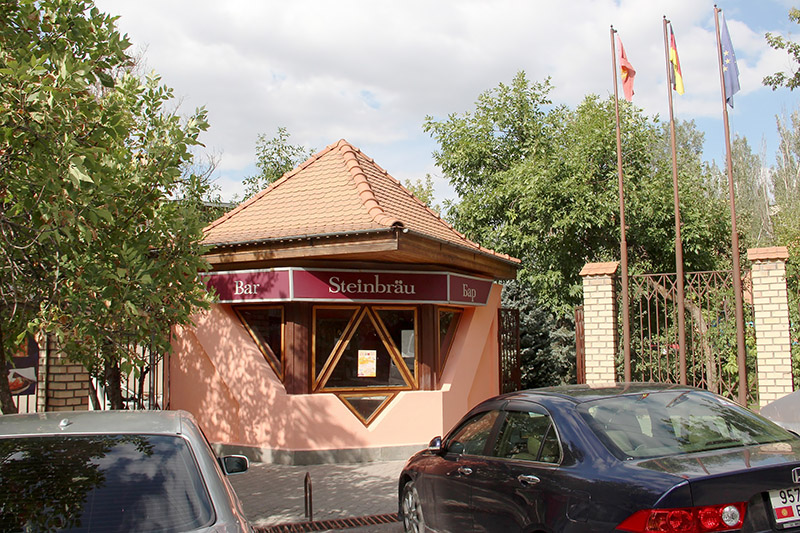
The other brewpub is called Steinbräu, and is a German themed venue also in a largely residential part of Bishkek. The German theme runs deep here, so much so that they adhere to the Reinheitsgebot – and offer a comprehensive menu of German food, including several styles of Würst, whole hocks, sauerkraut, etc. They have 4 styles of beer – a lager, a pilsner, a blonde ale, and a red ale – and each is a really solid example of the style. You get all the traits you expect out of each, in a pronounced but well balanced way. I’m not one to trumpet the difference between lagers, blonde ales, and pilsners loudly (I’m not at all confident I’d pass the Pepsi challenge), but you could definitely taste the difference between each here. The food is as good as any German brewhouse I’ve been to, and I would definitely eat here again. Like Blonder, it is comparatively expensive, but only as much as expected.
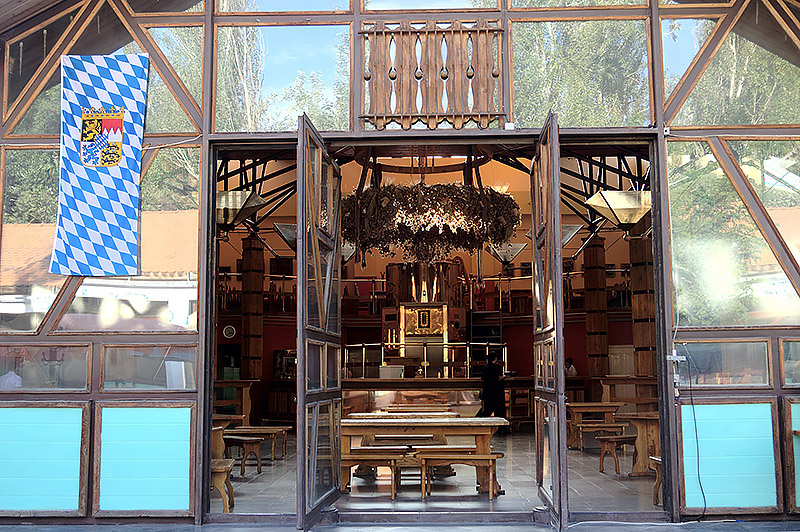
Steinbräu
5 Gertse Street
Bishkek
Kyrgyzstan
I remember the first brew pub that opened in my town; it was a little bit novelty and a little bit pricey, but it started something. It built an understanding of what beer could be, and removed the mystery of brewing from the general public. It exposed where beer came from and paved the way for a generation of people for whom brewing was something that they had seen and could aspire too as both an art and a profession. Today, some truly great beers (and more importantly, brewers of beers) are products of this generation.
Right now Kyrgyzstan knows about different beer and local brewers, they’re already prepared to try something new, they just need someone to show them how vast the beer category is and how good a good beer can be. There is a willingness to choose beer in Kyrgyzstan – to take a risk and try and something different. This is the first and most difficult step in building a better beer culture – there are millions of blind-folded Kyrgyz beer drinkers waiting to have their eyes opened.
For a country with so much culture and natural beauty to offer, it would be an amazing place to open a brewery and somewhere that a skilled brewer could really make a name for themselves in a short time as the one who bought craft beer to Central Asia.

